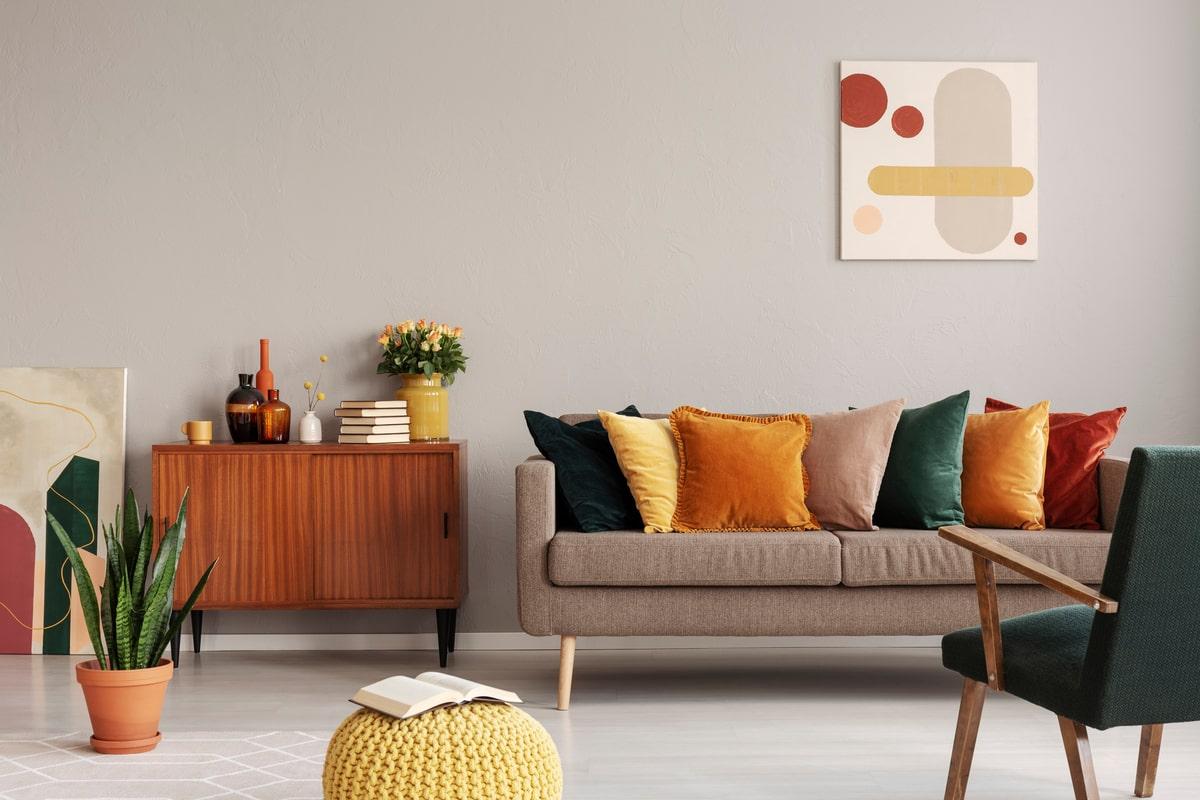
22 Feb Colour Scheme Tips From Bangkok’s Top Home Decoration Shop
Visit Our Decoration Shop in Bangkok And Build The Perfect Colour Scheme For Your Home
The colours that we surround ourselves with are important. They can influence our emotions, allow us to express our personalities, and help to set the mood in a room. Choosing the right colours for your interior design is a fun process. This article will cover the basics of colour theory and techniques for selecting a well-balanced colour scheme so you can create the perfect design for each room in your home.
Get To Know Your Colours
When building your colour palette, start by looking at a colour wheel and familiarising yourself with your options. The colour wheel is made up of primary colours, including red, yellow and blue, and secondary colours, including orange, green and purple, which are created by mixing primary colours.
Between these six colours are tertiary colours, which are made of varying mixes of primary and secondary colours. When creating a colour scheme, you will want to select a few colours that contrast well with each other.
Moods Connected to Colour
On the colour wheel, there are two groupings of colours. Warm colours, including reds, oranges, and yellows, make people feel creative and energetic. They can also make rooms feel cosier and more intimate.
On the other hand, cool colours, like greens, blues, and purples, have a calming effect and make people feel more relaxed. These colours can make a room seem open and spacious.
Colour Intensity
The intensity of a colour is based on how much white or black is mixed in. Lighter hues with more white mixed in, such as sky blue or pastel pink, can create a relaxed atmosphere. Meanwhile, bright colours, like royal purple or sunshine yellow, can add playfulness and energy to a room.

Approaches to Building A Colour Scheme
You can use a few different approaches to choosing colours based on their location on the colour wheel.
Complementary
Complementary colours are those found directly opposite each other on the colour wheel. These colour combinations tend to look good together and create a bold, energetic colour scheme.
Tertiary
A tertiary colour scheme includes three colours found at the points of an equilateral triangle drawn in the centre of the colour wheel. An example could be green, orange, and purple. These combinations will have a similar excitement to complementary colour schemes.
Analogous
Analogous colour schemes use colours found next to each other on the colour wheel, such as green as a central colour paired with yellow and blue. This type of colour combination is an intriguing choice that can create a soothing atmosphere.
Monochromatic
If you prefer not to go for a multiple-colour design, try a monochromatic approach. This type of design uses varying shades of a single colour, which can give your room a dramatic, eye-catching look.
Get Inspiration
If you aren’t sure which approach to use when selecting your design colours, it can help to get inspiration from artwork or items you love. You can build a beautiful colour scheme by drawing colours from a painting, pillow, or another decorative item that catches your eye.
Colour Ratios
So, how much of each colour should you incorporate into your design? Many interior designers use the 60-30-10 rule to ensure that each space has a great balance of colours. To use this guideline, pick the main colour that will make up 60 percent of your design, a secondary colour to make up 30 per cent, and an accent colour for the last 10 per cent.
Bending the Rules
If you want to incorporate four colours into your design, you can bend this rule. You can add a second accent colour that covers another 10 percent of your design, using a total of 110 per cent. Feel free to play around with the percentages of different colours in your room to fit your taste.

Final Colour Selection Tips
Start With Large Items
When choosing items to fit with your colour scheme, begin with large items like furniture and then move to smaller items like throw pillows, vases, or other accessories. There are more smaller items available in a variety of colours, so matching them to your large furniture items is easier than trying to do it the other way around.
Test Colours Together
You should test your colours together before committing to your entire colour scheme. Try to bring small accessories in your colour scheme to match up with furniture or cloth samples while shopping to see how they look together. Also, keep in mind the kind of lighting you have in each room and how this could affect your chosen items’ appearances.
Try Different Colour Schemes In Different Rooms
A great way to express your personality and incorporate many colours into your home is to choose unique colour schemes for different rooms. While too many colours in a single room can be overwhelming, encountering a new colour scheme when you enter a new room can give you a sense of excitement and help shift the mood between different rooms in your home.
Let Charoen Decor Help
The most important thing to do when decorating your home is to have fun and create a space you love. Take your time to enjoy the process and be creative. On the other hand, if you find it hard to choose a colour scheme, let Charoen Decor’s expert staff help you.
We have extensive experience in putting together beautiful designs and finding the perfect items to fit any colour scheme. We offer a wide variety of luxury fabrics, as well as quality fabrication services, so you can tailor your items to match your design. Stop by our home decoration shop in Bangkok to learn more about our products and services.


